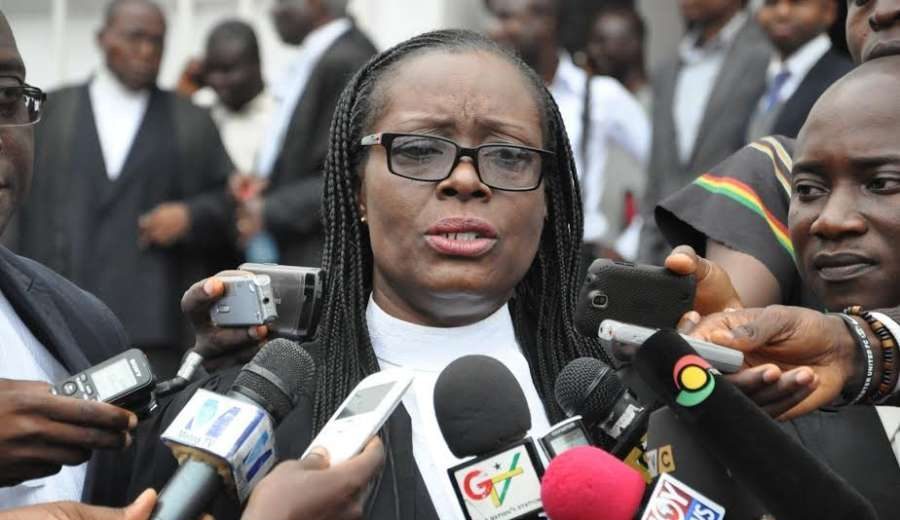
Where there is a shortage of water, the affected community may retire to bed in peace. Where the people cry over a fuel shortage, the noise, no matter how loud it may sound, may be forgotten as time passes. Where schools lament a shortage of furniture, the deprived souls may improvise. Where there are protests over shortage of infrastructure, a drift might avert a rift. But where there is a shortage of justice, nobody is safe.
Cash for Justice, an investigative documentary on some shady dealings at the Attorney-General’s Department, airs tonight.
The undercover probe, conducted within four months in the Upper East Region, is a case study on allegations Ghanaians have levelled openly against some state’s attorneys. The shortage of justice is one silent killer that has plagued the vulnerable class for an unmeasured amount of time.
Because a public outcry over some injustices has gone unheard for too long a period, a dangerous trend has emerged in the region. Lynching. The people resorted to getting justice their own way. A police commander, Chief/Supt. Samuel Punobyin, wept over the freedom criminals were enjoying in the region and the bondage of terror the helpless residents and travellers were enduring.
When he could not bear it anymore, the commander took the Attorney-General’s Department on in 2018. He was a lone warrior as his superiors in the region, for reasons the public is free to guess, watched in silence. The Attorney-General’s Department fought back in July, 2019, with a strong demand for a retraction and an apology for calling its integrity into question. The state prosecutors further threatened to haul him before court if the demand was not met in two weeks.
At a point, lynching of suspected criminals, guilty or guiltless, by the frustrated civilians became so rampant hardly would a month slip away without one or two incidents of mob justice being reported or recorded somewhere in the region. Democracy came under a threat. This threat inspired an investigative raid on the Attorney-General’s Department.
Reactions and Expectations
A trailer highlighting when and where the documentary would be aired was released last week. The 58-second-long teaser, voiced by Francis Abban and showing some faces receiving and counting bribe money, saw a significant upsurge in sales of television decoders ahead of the full airing of the documentary.
Courts in the Upper East Region reportedly adjourned all cases as it remained unclear to judges and lawyers as to which of the cases being heard were linked to the yet-to-be-aired investigative documentary.
After the documentary airs tonight, a Senior State Attorney is most certainly going to be sent home. And at least six officials at the Domestic Violence and Victim Support Unit (DOVVSU) of the Ghana Police Service will face interdiction, their final fate hanging in the balance. The region’s Chief State Attorney surely will have several questions to answer at the Ministry of Attorney General and Justice.
This investigative piece, centred on allegations and findings on the Attorney-General’s Department in the Upper East Region, is a single matchstick aimed at setting a whole forest of injustice on fire by re-prompting the President and the Chief Justice to the commitment they promised on delivery of quality justice— the justice without prejudice. Injustice anywhere, said Martin Luther King Jnr, is a threat to justice everywhere.
The piece features a big shot— Emmanuel Lawrence Otoo-Boison, a Senior State Attorney. He is the region’s most powerful man with two police bodyguards at his beck and call. Such is his alleged might that it is said the only thing he cannot do is to change a man into a woman and vice versa. He tramples on court premises with such a quick pace and a probing face people feel he could be offended if they greet him. And whenever he enters a courtroom, he storms his way to the lawyers’ bench in front. He is like a storm: whenever he enters, everybody notices it. He does so with his marching footsteps and his free-flowing law gown bloated by a trapped wind.
Justice at Last
During the promo week, my phone came under siege with endless calls from individuals and families whose relatives had either been killed, raped, robbed, wrongfully remanded in prison custody or defrauded but reportedly were denied justice through what they described as “questionable advice” proffered by the Attorney-General’s Department.
A man was wet in the face with drips of tears as he narrated how his son was killed in the Bongo District and the alleged killer walked back to freedom without justice served. He showed me a gory picture of his son’s body covered in blood with parts of his intestines out after he was shot dead in cold blood. The promo gave him hope of getting justice for the slain child. The grieving father is among the distraught residents who will be on State of Affairs with Nana Aba Anamoah tonight after the airing of the documentary at 6:30pm.
Lawyers, some of whom have watched excerpts of the documentary, have sent out a solemn word to grief-stricken families that there is hope of getting justice again by making their grievances known to the Attorney General and Minister for Justice through petitions. There will be a review. And there will be justice at last.
Justice must not be short in supply. Justice must not go only to those who can afford. Justice must not be sold. A society where justice is scarce is an unsafe place to inhabit. It is my expectation that the wrongs deliberately perpetrated in the past for cash at the expense of justice-seeking citizens and non citizens will be righted after the documentary. It is my hope that those wrongs will not recur. And it is my firm belief that, when trust is reinstated and justice is reestablished at last, lynching will cease forever.
Source: Ghana/Kasapafmonline.com/102.5FM/Edward Adeti


